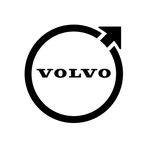Volvo's Job Cuts: A Reflection of Tariff Turmoil
April 20, 2025, 4:17 pm

Location: United States, North Carolina, Greensboro
Employees: 1-10
Founded date: 1927
Volvo Group is tightening its belt. The company plans to lay off up to 800 workers across three U.S. facilities. This decision comes as a direct response to market uncertainty and the impact of tariffs imposed by the Trump administration. The heavy-duty truck industry is feeling the pinch, and Volvo is no exception.
In Macungie, Pennsylvania, the Mack Trucks site is set to bear the brunt of these cuts. The Volvo facilities in Dublin, Virginia, and Hagerstown, Maryland, will also see significant reductions in workforce. The company has informed its employees of the impending layoffs, which could range from 550 to 800 positions. This is not just a number; it represents families, livelihoods, and communities affected by a shifting economic landscape.
The backdrop to this decision is a turbulent trade environment. President Trump’s tariffs have disrupted the global trading system, which has been stable for decades. His policies have sent ripples through various industries, creating a climate of uncertainty. Businesses are hesitant to invest or expand when the rules of the game keep changing. The auto and truck sectors are particularly vulnerable. They rely on a delicate balance of supply chains and consumer confidence. When tariffs increase costs, the entire system feels the strain.
Volvo's spokesperson highlighted the need to align production with reduced demand for their vehicles. Heavy-duty truck orders are faltering. Freight rates are unpredictable, and potential regulatory changes loom large. The uncertainty is palpable. It’s like trying to navigate a ship through fog; you can’t see the obstacles ahead, and every decision feels risky.
The impact of these layoffs extends beyond the immediate workforce. It affects suppliers, local economies, and the broader market. When a major player like Volvo cuts jobs, it sends a signal. Other companies may follow suit, leading to a domino effect. The ripple can turn into a wave, pushing more businesses to reconsider their staffing and production strategies.
Economists are already raising alarms about a potential recession. The combination of tariffs, market uncertainty, and consumer hesitance is a recipe for economic stagnation. The auto industry, a bellwether for the economy, is showing signs of strain. As companies like Volvo scale back, the fear is that this could lead to a broader economic downturn.
Volvo employs nearly 20,000 people in North America. This makes the layoffs a significant event, not just for the company but for the region. Communities depend on these jobs. The loss of 800 positions can ripple through local economies, affecting everything from housing markets to retail businesses. Families will face tough choices, and the emotional toll cannot be understated.
The timing of these layoffs is also crucial. As the economy grapples with inflation and rising costs, consumer confidence is wavering. People are tightening their belts. They are less likely to make big purchases, such as trucks or cars. This hesitance is reflected in Volvo's decision to cut jobs. It’s a cycle that feeds on itself. Reduced demand leads to layoffs, which leads to less spending, further reducing demand.
The tariffs are a significant factor in this equation. They increase the cost of manufacturing, making it harder for companies to compete. When production costs rise, companies must make tough decisions. They can either pass those costs onto consumers, which can lead to decreased sales, or they can cut costs elsewhere, often through layoffs. Volvo has chosen the latter.
The situation is not unique to Volvo. Other companies in the automotive sector are facing similar challenges. The trade war between the U.S. and China has created a tense environment. As both nations dig in on tariffs, the implications for global trade are profound. Companies are caught in the crossfire, forced to adapt to a rapidly changing landscape.
In conclusion, Volvo's decision to cut jobs is a stark reminder of the fragility of the current economic climate. Tariffs have created uncertainty, leading to reduced demand and tough choices for companies. The impact of these layoffs will be felt far beyond the factory floors. It’s a cautionary tale of how interconnected our economy is. As one company struggles, the effects can cascade through communities and industries. The road ahead is uncertain, and the stakes are high. The question remains: how will the industry adapt to this new reality? Only time will tell.
In Macungie, Pennsylvania, the Mack Trucks site is set to bear the brunt of these cuts. The Volvo facilities in Dublin, Virginia, and Hagerstown, Maryland, will also see significant reductions in workforce. The company has informed its employees of the impending layoffs, which could range from 550 to 800 positions. This is not just a number; it represents families, livelihoods, and communities affected by a shifting economic landscape.
The backdrop to this decision is a turbulent trade environment. President Trump’s tariffs have disrupted the global trading system, which has been stable for decades. His policies have sent ripples through various industries, creating a climate of uncertainty. Businesses are hesitant to invest or expand when the rules of the game keep changing. The auto and truck sectors are particularly vulnerable. They rely on a delicate balance of supply chains and consumer confidence. When tariffs increase costs, the entire system feels the strain.
Volvo's spokesperson highlighted the need to align production with reduced demand for their vehicles. Heavy-duty truck orders are faltering. Freight rates are unpredictable, and potential regulatory changes loom large. The uncertainty is palpable. It’s like trying to navigate a ship through fog; you can’t see the obstacles ahead, and every decision feels risky.
The impact of these layoffs extends beyond the immediate workforce. It affects suppliers, local economies, and the broader market. When a major player like Volvo cuts jobs, it sends a signal. Other companies may follow suit, leading to a domino effect. The ripple can turn into a wave, pushing more businesses to reconsider their staffing and production strategies.
Economists are already raising alarms about a potential recession. The combination of tariffs, market uncertainty, and consumer hesitance is a recipe for economic stagnation. The auto industry, a bellwether for the economy, is showing signs of strain. As companies like Volvo scale back, the fear is that this could lead to a broader economic downturn.
Volvo employs nearly 20,000 people in North America. This makes the layoffs a significant event, not just for the company but for the region. Communities depend on these jobs. The loss of 800 positions can ripple through local economies, affecting everything from housing markets to retail businesses. Families will face tough choices, and the emotional toll cannot be understated.
The timing of these layoffs is also crucial. As the economy grapples with inflation and rising costs, consumer confidence is wavering. People are tightening their belts. They are less likely to make big purchases, such as trucks or cars. This hesitance is reflected in Volvo's decision to cut jobs. It’s a cycle that feeds on itself. Reduced demand leads to layoffs, which leads to less spending, further reducing demand.
The tariffs are a significant factor in this equation. They increase the cost of manufacturing, making it harder for companies to compete. When production costs rise, companies must make tough decisions. They can either pass those costs onto consumers, which can lead to decreased sales, or they can cut costs elsewhere, often through layoffs. Volvo has chosen the latter.
The situation is not unique to Volvo. Other companies in the automotive sector are facing similar challenges. The trade war between the U.S. and China has created a tense environment. As both nations dig in on tariffs, the implications for global trade are profound. Companies are caught in the crossfire, forced to adapt to a rapidly changing landscape.
In conclusion, Volvo's decision to cut jobs is a stark reminder of the fragility of the current economic climate. Tariffs have created uncertainty, leading to reduced demand and tough choices for companies. The impact of these layoffs will be felt far beyond the factory floors. It’s a cautionary tale of how interconnected our economy is. As one company struggles, the effects can cascade through communities and industries. The road ahead is uncertain, and the stakes are high. The question remains: how will the industry adapt to this new reality? Only time will tell.
